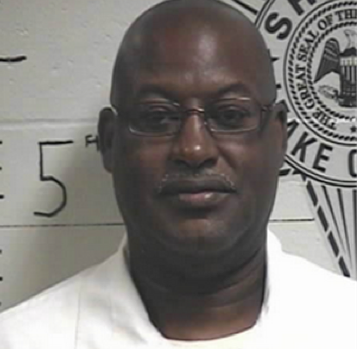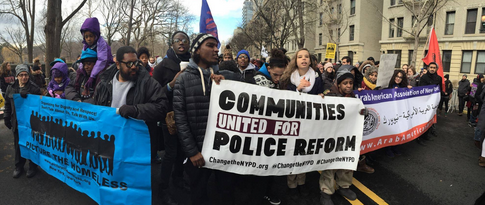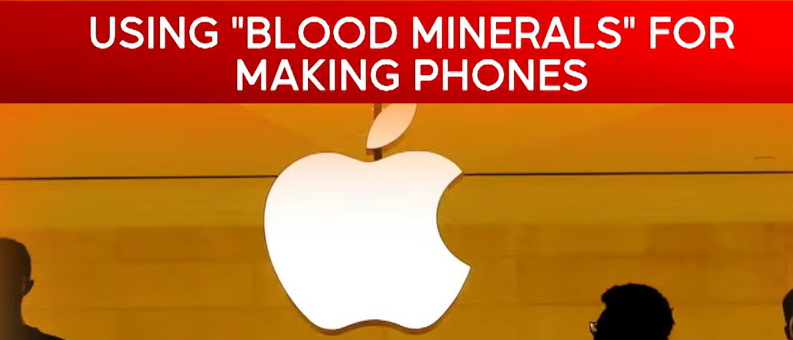Wansley
On February 20, 2012 the Attorney General’s office, made the following statement to CNN: “Our office has the singular responsibility to not only ensure that the guilty are punished, but that the innocent are set free.”
Well Mr. Attorney General, put your money where your mouth is and start unlocking them cells. While you are at it, throw in a little compensation for our friend Jeffrey Wansley who has been told over and over by the Justice system that his life did not matter because it is their party and they’ll keep him incarcerated if they want to.
You cannot logically take anything away from someone who has nothing, but in the case of Jeffery Wansley, the State took his freedom, his reputation and his future. So do not go on thinking you have nothing until the system comes after you and proves you wrong.
To make a long and wrongful story short, Wansley was charged, tried and convicted for the sale of a controlled substance and the State of Mississippi never produced the alleged evidence for which he was charged, or proved that it ever existed.
He was sentenced to thirty years, the maximum allowed under the drug sales statute, and he is incarcerated since 2000 and has not had a parole hearing for 4 years after he became eligible. The courts have ordered the State to comply, but it has not and the question is being argued in the 5th Circuit Court of Appeals.
Factual and Procedural History: On December 8, 1999, Wansley was convicted in the Circuit Court of Newton County, Mississippi, of selling $100 worth of cocaine within 1,500 feet of a church.
He was charged and convicted under two statutes: the first one makes it unlawful to sell cocaine, among other controlled substances and carries a maximum 30-year term of imprisonment. The second one authorizes a defendant’s sentence and fine to be doubled by the trial Judge when a substance is sold within 1,500 feet of a church, school, or other public facility. It is known as a ‘’sentence enhancement.”
The jury found that Wansley had sold cocaine within 1,500 feet of a church. Accordingly, the second statute required Wansley to be punished in accordance, and then, “in the discretion of the court,” permitted the trial judge to double that punishment. The trial judge sentenced Wansley to 30 years of imprisonment, the maximum term authorized and no further sentence or fine was assessed.
Wansley’s conviction and sentence were affirmed on direct appeal by the Mississippi Supreme Court. His state habeas petitions were denied. A federal habeas petition also was denied.
Years went by and on April 28, 2009, the Mississippi Department of Corrections (MDOC) calculated Wansley’s sentence as without sentence enhancement. The record also showed a parole date because the Mississippi law generally allows non-violent offenders to be eligible for parole after service of at least 10 years’ time.
Approximately two weeks later, however, on July 29, 2009, MDOC recalculated and reprinted Wansley’s time sheet and the new calculation showed that Wansley had been sentenced to an “Enhanced Penalty.”
On September 23, 2009, Wansley filed a grievance with MDOC’s Administrative Remedy Program explaining his sentence and alleging that the enhancement first appeared after he applied for parole.
Also in November 2009, Wansley filed a motion for clarification in the Mississippi Supreme Court. He again described the parole-eligibility problem and asked for either the court or the Attorney General’s office “to clarify this sentence discrepancy.”
His motion was denied as “not well taken” on December 30, 2009 and no explanation was given.
In September 2010, Wansley filed a petition for habeas relief. He claimed that MDOC had erroneously denied him the right to seek parole. He then sought parole or eligibility for parole, as well as damages for his allegedly extended incarceration.
After a number of filings and motions, the Judge entered a Report and Recommendation proposing to grant the State’s motion to dismiss them all.
Statement of the case: After living overseas for 23 years, Jeffery Wansley came back to Union Mississippi, on April 19, 1999. He obtained employment two weeks later in furniture retail. He eventually ended up working the night shift at La-Z-boy and would sleep most of the day in his trailer that happened to be located behind Emmanuel Baptist Church.
On September 30, 1999, he was approached by a police officer who told him that the MBN (Mississippi Bureau of Narcotics) wanted to talk to him about some drug activity in the area. Wansley assured him he had nothing to do with drugs, but he was told that they only wanted to talk to him. In fact, Wansley did not drink, smoke or use drugs of any kind.
They took him to the house of Trellis Windham who was an ex-police officer suspected of dealing drugs in the neighborhood, and where they were conducting a search. Wansley knew him because they had gone to school together in the 70’s and hung out together a few times. As they came up empty with the search, the cops asked Wansley if he would consent to a search of his own house. He asked if he was under arrest and they told him no. He ended up signing the consent form thinking he did not have anything to hide. Not a very wise move but like many other citizens, Wansley was not too savvy in these matters.
Nothing was found but they took him to the station for questioning anyway and assured him everything was copacetic. However, in the discovery, it said that two glass vials were found in his house containing pieces of cocaine for a total of 39.4 grams. But no one has ever seen them and no photos were taken of this ‘evidence.’
Wansley was taken to jail awaiting questioning but he was never interrogated. Instead, an MBN agent went to get an affidavit of arrest for 1 count. When the chief of police came to get him, he thought he was being released because he was taken outside. Another agent showed up and put him under arrest for 5 counts of sale of cocaine, 1 count of possession and 1 count of conspiracy. When Wansley asked him when, where and who he could have been selling to, he was ignored.
Not only did Wansley deny selling any illegal substances but the report was dated a month earlier to make him look like a dealer. The Mississipi Crime lab had no evidence of drugs, weapons, audiotape or photos of drugs or cash to support the allegations.
How could he be charged, tried and sentenced without evidence?
The discovery was suppressed from Wansley before the trial and his sister managed to obtain an affidavit of arrest with 1 count. But the judge quoted seven counts and set bail at $175,000.00, which represented a violation of the Eight Amendment which prohibits excessive bail.
At the County jail, MBN agent Stanley Wash told Wansley he could greatly help his case by telling on Trellis Windham. He refused as he was not aware of Trellis’s activities after having been in the country for only 5 months. Stanley told Wansley that he had heard that he was selling cocaine; he was basically going on a hunch to fry two fishes at once. What a catch it would be for him, but the problem is that Wansley would not cooperate.
After his refusal to ‘cooperate’ Wash immediately took Wansley in front of the municipal court judge where all his constitutional rights were violated. First with the 7 counts instead of 1. He asked for a court appointed attorney to get a preliminary hearing, review the discovery and get a bond reduction.
No court appointed attorney ever came until the day of his trial and he never received a preliminary hearing, bond reduction or the discovery; a blatant violation of his federally protected rights of Due Process and Equal Protection.
After two months of incarceration, he was rushed into court on December 4, 1999, and asked what his plea was. He answered not guilty. On December 7, 1999, he was taken to court and asked the same question.
Wansley had not managed to talk to an attorney yet so he asked the court to hire a private attorney that his family would pay for. After a five minute recess, the court denied his request and set the trial for the day after. He was told to keep the court appointed attorney that he had never met.
With one day to prepare for trial, he sat in his cell and received the visit of another inmate with a message for him: That there was no evidence against him but someone was going to lie and testify he had sold him $100 worth of cocaine. It sure sounded like a shake down hoping Wansley would sing and throw Trellis under the bus.
He was then denied the obligatory process of having favorable witnesses or requesting evidence. When Wansley asked his attorney to request the $100 bill or audiotape of the alleged drug deal, his legal defender stood up and said the defense rests.
On top of dealing with a forced attorney, the 12 jurors picked for his trial came from a pool of 48 people. Some of the jurors were cousins of the MBA agent and one had served three times under the same judge and officials. Just like in the movies but much worse.
At trial, the prosecution and its witnesses; the MBN and a convicted felon/drug abuser named McCall testified that Wansley used a $100 bill of Official State Funds, bearing serial number #AH30644253A and that a 60’’ audio cassette tape was used in an undercover sting operation to produce a recording of the deal. By the way, this McCall fellow also testified against Trellis Widham who then received a 30 year sentence.
Even though the jury was led to believe there was a $100 bill and an audiotape in evidence, it never materialized.
To prove his innocence, Wansley even submitted the serial numbers to the United States Dept. of Treasury, under the Freedom of Information Act (FOIA), and that agency verified that the serial numbers came from a $20 bill.
Grounds for Appeal:
Ineffective counsel: counsel failed to communicate with him about the case
Counsel failed to subpoena witnesses for his defense
Counsel was unprepared for trial
Counsel failed to seek a continuance in order to familiarize himself with Wansley’s case
Counsel failed to file a motion for a suppression hearing as requested
Counsel failed to object to the seating of a jury whom had previously heard three civil cases
Counsel failed to allow Wansley to review discovery materials
Counsel failed to inform the court that Wansley had been denied the opportunity to obtain private counsel and failed to subpoena transcripts from the trial court, with the results that by the time Wansley purchased his own copy, they had been tampered with.
The arrest was made several weeks after the sale. The marked bill was never recovered.
There is a conflict between the prosecution witnesses over whether the transaction took place more or less than 1500 feet from a church and it is impossible to prove. Wansley happened to live in a trailer near the Church but the exact location of alleged deal was not determined with certainty.
The alleged marked $100 bill was never recovered. There is no photocopy of it from the Crime Lab proving its existence. It should not have been considered as evidence.
The defendant was refused the right to a private attorney.
The defendant was refused access to the discovery.
Conclusion: Wansley’s appeal has been denied and his conviction for sale of a controlled substance and sentence of 30 years were affirmed. His endless fight for parole and retribution always seem to be met with denial and contempt.
If Wansley has sold $100 worth of cocaine, which he strongly refutes, the way he was denied his fundamental legal and human rights would still be scandalous. And the sentence he received would still be scandalous.
The unabashed way the State of Mississippi went after Jeffrey Wansley is a hard pill to swallow. If you are a minority with not much to your name, you better watch out because they might decide to deny your rights and throw you in jail just because they want to. There has to be a remedy and we must call on the Attorney General to keep his word and set free the innocents like Wansley.
You can call the office of the Mississippi’s Attorney General and tell Jim Hood that nothing from nothing means something: (601) 359-3680.
Or you can write to the Mississippi’s Governor on twitter at @PhilBryantMS or through his website www.governorbryant.com/







